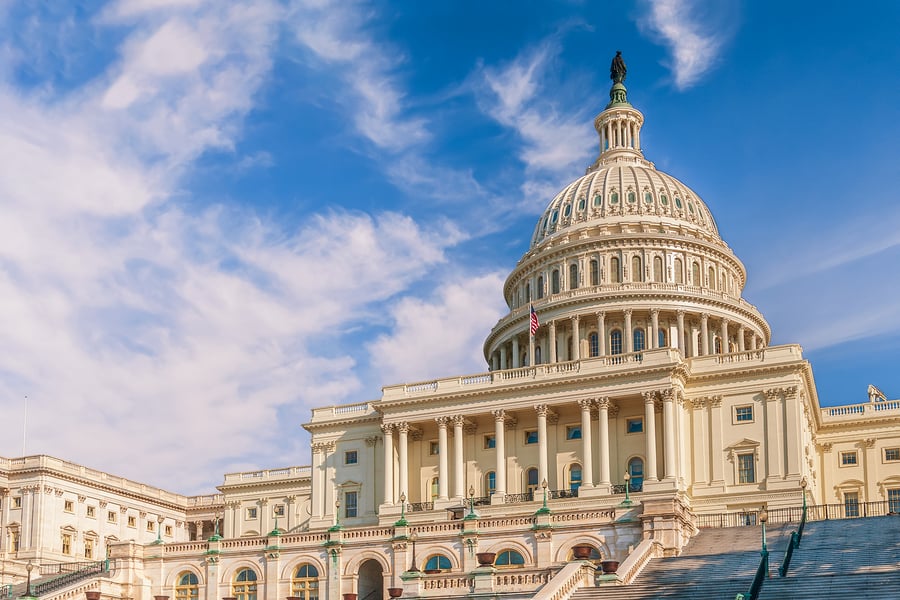Jen Psaki Doubles Down On Lies Against American Energy Producers
When asked by a news correspondent this month if President Biden intended to reverse course and reinstate pro-America energy policies, White House Press Secretary Jen Psaki responded that there are 9,000 approved oil leases that the oil companies are not tapping into currently. But, as American Petroleum Institute President and CEO Mike Sommers indicates, her statement amounts to factual distortion. “Just because you have a lease doesn’t mean there’s actually oil and gas in that lease, and there has to be a lot of development that occurs between the leasing and then ultimately permitting for that acreage to be productive,” Sommers said. In fact, the industry is using a higher percentage of federal onshore and offshore leases than at any time in the past, and it is continuing to increase production to meet surging demand.
The U.S. oil industry has both developed and undeveloped leases and it pays the government fees for renting them, regardless of whether oil and gas is eventually found and produced. It generally takes 7 to 10 years for oil companies to determine whether a lease will become productive and for them to invest in the infrastructure that is needed to produce the oil. With the Biden administration trying to push banks away from funding oil and gas projects and instead spend money on renewable energy, it is no wonder that the industry is hesitating to make the investment needed. Besides the need to obtain necessary capital to make the investment, the oil industry is faced with the uncertainty caused by Biden and his administration about imposing new taxes and regulations on the industry that were contained in the Build Back Better Bill. Further, the Department of Interior agreed with upping the royalty rates on the industry when they performed the review Biden requested when he placed the ban on new oil and drilling on public lands.
Because Biden touted his anti-oil and gas policies during his campaign for the Presidency, there was a flurry of lease purchases in 2020, despite record-breaking low – and even negative – oil prices resulting from the demand destruction due to the COVID lockdown. Those fears were justified as President Biden shut down leasing activities on his first day in office, and his leasing moratorium continues, despite a judge indicating that only Congress had the authority to approve not holding lease sales since Federal laws required the lease sales. Finally bowing to the law and conducting one lease sale in the Gulf of Mexico in the fall, another judge invalidated it on the grounds that the government had failed to take climate change into consideration. Biden’s administration has done nothing to contest that judgment, and in fact was appealing the original judge’s order the same week as the lease sale. To Biden and his administration, it is better to import oil from OPEC+ (the + is mainly Russia), Venezuela or Iran than to help the U.S. oil industry.
In the same press conference that Psaki misrepresented the 9000 leases, she falsely claimed Joe Biden was not funding the Russian war effort by continuing to import over 650,000 barrels of oil from Russia every day (about 8 percent of U.S. oil imports and 3 percent of oil consumption). At $120 a barrel that equates to $78 million a day from the United States to Russia alone. As the world’s third-largest oil producer providing more than 10 percent of global supply, Russia raked in $119 billion in resource revenues last year.
Due to pressure from Congress, Biden announced a ban on oil, liquefied natural gas and coal imports from Russia, signing an executive order to that effect on March 8. The day before, a bipartisan group of American lawmakers agreed to move ahead with legislation that would ban Russian energy imports in the United States and suspend normal trade relations with Russia and Belarus. Some European countries, which are highly dependent on Russian energy, have expressed a willingness to reduce their reliance on those imports, as well. Biden’s order blocks any new purchases of those energy products and winds down the deliveries of existing purchases that have already been contracted for. The White House said the action also bans new U.S. investment in Russia’s energy sector and prohibits Americans from participating in foreign investments that flow into that sector in Russia. China, which controls the minerals necessary for Biden’s “green energy transition,” immediately stepped into that space.
Gasoline prices have now surpassed their high in 2008, reaching an average of $4.17 a gallon. But, that is what Biden wants as his Secretary of Energy Granholm indicated—rising oil, natural gas and electricity prices benefit the transition to renewable fuels and Biden’s energy agenda.
Conclusion
The Biden administration and particularly Jen Psaki need to better understand the oil industry and energy markets so that they stop spouting misleading statements about oil leases and other industry-related subjects. The reason there are 9,000 undeveloped oil leases is because companies do not want to invest the massive amounts of money and manpower necessary to drill for oil when the Biden administration is constantly threatening to impose new or increasing taxes, fees and regulations on the industry, and “working like the devil” through all the financial institutions to cut off their funding and “bankrupt them.” With the ban on lease sales on federal lands, Biden has shown the U.S. oil industry through his actions that he does not want to do business with them. He would rather import oil from OPEC, Venezuela and Iran than to further develop the U.S. oil industry. His actions speak louder than his words.


